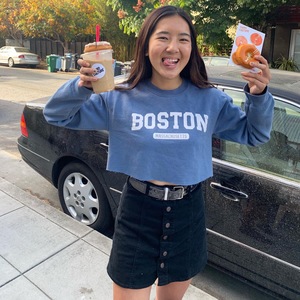Being a foodie is a privilege. Although Golden Gate Bakery may have delicious $2.25 egg tarts and Saigon Sandwich may have $4 sandwiches big enough for two meals, having the time and resources to venture out in search of an expensive, trendy meal is a privilege that foodies need to recognize. Yelp has become a platform for these foodies to voice their thoughts on where the best eats in the area are, but as more restaurants are being catered to millennials, many small businesses are being pushed out of their ethnic communities.
Gentrification in the Bay Area
The only Indonesian restaurant in Berkeley shut down a couple months ago, and on its closing day, students lined up around the block an hour before its opening. I wasn’t even aware Berkeley had an Indonesian restaurant to begin with. Despite the support from the BISA (Berkeley Indonesian Student Association) and other students who wanted a taste of home or authenticity, the small percentage of Indonesian students was not enough to keep this shop open with the skyrocketing Bay Area rent prices.
Yelp and Gentrification
“While gentrification is a bit of a dirty word for some people, for Yelper’s it’s about this sense of urban adventurism.”- CEO of Diversity and Inclusion at Yelp.
It has been said that Yelp is used as a litmus test for gentrification, and within the Mission district—an area of SF currently actively speaking out against gentrification—we see that this proves to be true. Walking down Valencia Street, you see trendy matcha/artisanal chocolate shops interspersed in a neighborhood riddled with authentic taquerias and a housing crisis.
Is Yelping Helping?
Gentrification continues to push underrepresented populations out of the Bay Area, and if we do not advocate for these businesses and communities of color, they could disappear. Yelp is my map of the world, and I frequently use it as a way to explore new cities. Although I may not have discovered some small, culinary and cultural gems without Yelp, I also see the negative effects of gentrification in the form of a loss of culture. Some of these small businesses are celebrations of a culture—the one place where immigrants/refugees can come and enjoy their country’s food—and I don’t want these businesses to be those “lucky gems” people stumble upon.
Saying that Yelp brings about a sense of “urban adventurism” is insinuating that these restaurants would not have thrived without the support of the wealthy Yelpers who “discovered” them, much in the way Christopher Columbus discovered America. Golden Gate Bakery in San Francisco’s Chinatown has become a tourist attraction for piping hot, authentic custard egg tarts, but I would not attribute its success to the Yelpers who came to visit and wrote about it. It garnered attention within its own ethnic community first, and the press followed.
Following Trends or Furthering Gentrification?
There has been a shift towards eating in restaurants that are more modern and trendy for the sake of eating at a “Michelin Star or Eater SF recommended” spot rather than a spot that has GOOD food. More often than not, I have read Yelp reviews that ridicule workers for not knowing English or complain about the decorations within a space. In addition, the financial resources necessary to build a gorgeous, Instagram-worthy restaurant space is far greater than small family businesses already being threatened by gentrification can afford.
However, rather than demonize Yelp, I think that we can all do our part to promote these businesses by actively writing reviews for the small eateries we would hate to see go, inviting our friends and families to these places, and if the line for Noosh is 2 hours long, why not use Yelp to find another eatery? The people who do not have the voices, the funding, and the platform to advocate for these small businesses will continue to be overshadowed by the louder voices from fine dining magazines, restaurant franchises, and more unless we—the people who enjoy these businesses—speak up for them.
#SpoonTip: In light of COVID-19, these small businesses are struggling to keep their doors open and face issues such as xenophobia/racism. To support these businesses, buy a gift card, order take-out, or shop from family-owned grocery stores. Building community support is crucial to making sociocultural progress, and Yelpers can definitely play a role in creating a stronger, healthier community.







